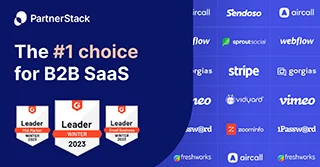Education
20 Tips to Help You Become A Better Freelancer

If you thought freelancing was what you do between jobs – think again. By 2027, freelancers will make up most of the workforce!
You can thank the Gig economy, which has come about due to the digital transformation of industries, the economy, and the COVID pandemic.
Today, workers are empowered to work as freelancers, aka contract workers, and accept short-term contracts with businesses on and offshore.
Freelancing for some workers was a way to earn a secondary income from part-time work or a side hustle. However, why not freelance full-time, making an excellent living doing what you love?
You will need to professionalize your status as a freelancer and be responsible for paying your taxes and ongoing training to keep your skills relevant. Which leads us to our tips so you can be a successful freelancer.
20 Tips For Freelancers
To help you along, we have twenty tips that will go a long way in professionalizing your new full-time ‘business’ as a freelancer.
Tip #1: Don’t Isolate Yourself
Freelancing is often a very solitary career. However, you need to be sure that you maintain a social life with friends and family to avoid isolating yourself. If you’re working from home, where you live can be an opportunity to socialize or network with like-minded peers. For example, coliving is popular and has shared spaces like kitchens and dining rooms. Plus, you can also choose coliving when you’re traveling for work. Coliving and coworking fit perfectly with a freelancer keen on a travelpreneur lifestyle.
Tip #1: Choose a Legal Entity and Create a Business Plan
Freelancing is often the precursor to operating a small business. When you decide to freelance full-time, your first step is determining how you wish to formalize your entity. Will it be with an LLC or as a sole operator? Research online what’s legally required in your state or region; it doesn’t hurt to reach out to a tax or accounting professional to assist you with deciding and setting up your legal entity. If you plan to have staff at some stage, choose the LLC structure.
Your business plan will be your blueprint for when the time is right to start hiring workers.
Your business plan can be a one-page statement of goals and growth as you realize what’s required to operate professionally as a full-time freelancer and then as a small business with staff. To ensure you have work for at least 48 weeks per year, some of your primary components will include:
- Goals immediate, short, and medium term, and the milestones
- Statement of Income required, hourly rate, and working capital requirements
- Marketing strategy, including tasks to create an online presence and attract job leads
Tip #2: Reach Out to Old Clients
If you need more projects, try contacting old clients to see if they have any work available. Your email might be just the call to action required for a new project. You can ask your recent employers if they have worked for you. The worst thing is that businesses will hold onto your resume and contact details. The best outcome is they have a project you can start on immediately.
Tip #3: Cold Call
If you need more work, find a business that could use your services and call or email them. Many times, cold calling is much more effective than you might think.
Tip #4: Grow Your Online Presence
In addition to working off freelancing platforms, grow your online presence by building a website and social media profiles for your business. LinkedIn is a social network for professionals. It’s also where you can connect and network with prospective employers and learn about new industry developments.
Tip #5: Attend Freelance Networking Events
Meeting other freelancers is a great way to expand your horizons and find connections that could prove to be valuable. This can be done online on Linkedin, a job search platform, or a recruitment site.
Tip #6: Hone Your Soft Skills
Soft skills such as communication and empathy can be equally important as the skills specific to your profession and industry. Join business associations to practice your soft skills by collaborating and talking in person and online with your peers.
Tip #7: Craft a Killer Sales Pitch
Develop a sales pitch and test it on people you trust. Once you’ve honed it to perfection, you can use it as a basic template for every assignment application. Don’t be afraid to tell prospective clients about your skills and achievements in your sales pitch within your cover letter or email.
Tip #8: Showcase The Work You Want
If you enjoy doing a particular project, showcase it in your portfolio. Clients needing that type of project will be more likely to hire you.
Tip #9: Bid Higher
If you have enough work to keep you busy, try bidding higher than usual on a few projects. While this may seem risky, your hourly rate may be too low if you’re in demand.
Your clients will determine what is considered a fair rate for your services. This is a market economy, and your hourly rate can go up and down. Keep investing in your skills and knowledge to command the optimum hourly rate.
Tip #10: Let Clients Go
It can sometimes be challenging to let go of a client. However, if you have a client causing you headaches or paying an amount that is no longer your going rate, letting them go can be the best thing for your career. Putting yourself first is a requirement for meeting your business goals.
Let go of clients who do not fit with your goals. You may be expected to work hours for free, or your hourly rate is too low. Weigh the pros and cons of keeping the client versus letting them go.
Tip #11: Create a Budget
Freelancing income is often anything but steady. Therefore, it helps to create a budget for your business and personal expenses and stick to it. Some costs are not immediate, like tax obligations, so you must save for them and have some working capital you can fall back on if the work dries up.
Tip #12: Don’t Put All Your Eggs in One Basket
You should have multiple websites that you work off of and multiple clients to ensure that your freelance business is diversified.
Tip #13: Work On Your Own Projects
There will be times when work is slow, i.e., between jobs, which may happen more frequently in the immediate term while you establish your profile and build your network. When starting as a freelancer, work on your business, which may be yours.
Keep the same regular work hours and work on your projects to keep your talents sharp and your documentation, i.e., your resume or CV, up to date.
Tip #14: Use An Accountant
Do you know how to do self-assessment tax returns? If not, outsource your tax and financial statements to a chartered business accountant.
There is a fee for professional services; however, you will get the right advice about the health of your business, what to claim as an expense, and how much to pay yourself. Plus, you’ll pay the tax you need, which is not always the same as if you did self-assessment tax returns.
Accountants know more about tax and the latest laws for businesses and freelancing.
Tip #16: Set Goals
Goal-setting is one of the most effective ways to stay motivated. Set daily goals for the amount of work you want to do, goals for your yearly income plans for the growth of your business, and more to ensure that you are always moving forward.
Tip #17: Go Above and Beyond
With every project you take on, make it your mission to deliver your best work. Going above and beyond each time leads to great reviews and lifelong clients.
Tip #18: Ask for Reviews
When a client is happy with your work, politely ask if they would care to leave you a positive review. Most clients will be glad to leave a review when prompted.
Tip #19: Set a Schedule
Sticking to a schedule is the best way to ensure productivity and not overwork, even when you control your hours.
Tip #20: Take Time Off
Working around the clock when you control your schedule may be tempting, but time off is essential to keep from getting burned out. Work vacations into your busy work schedule. Everyone deserves time out; you’ll return to work fresher and more productive.









